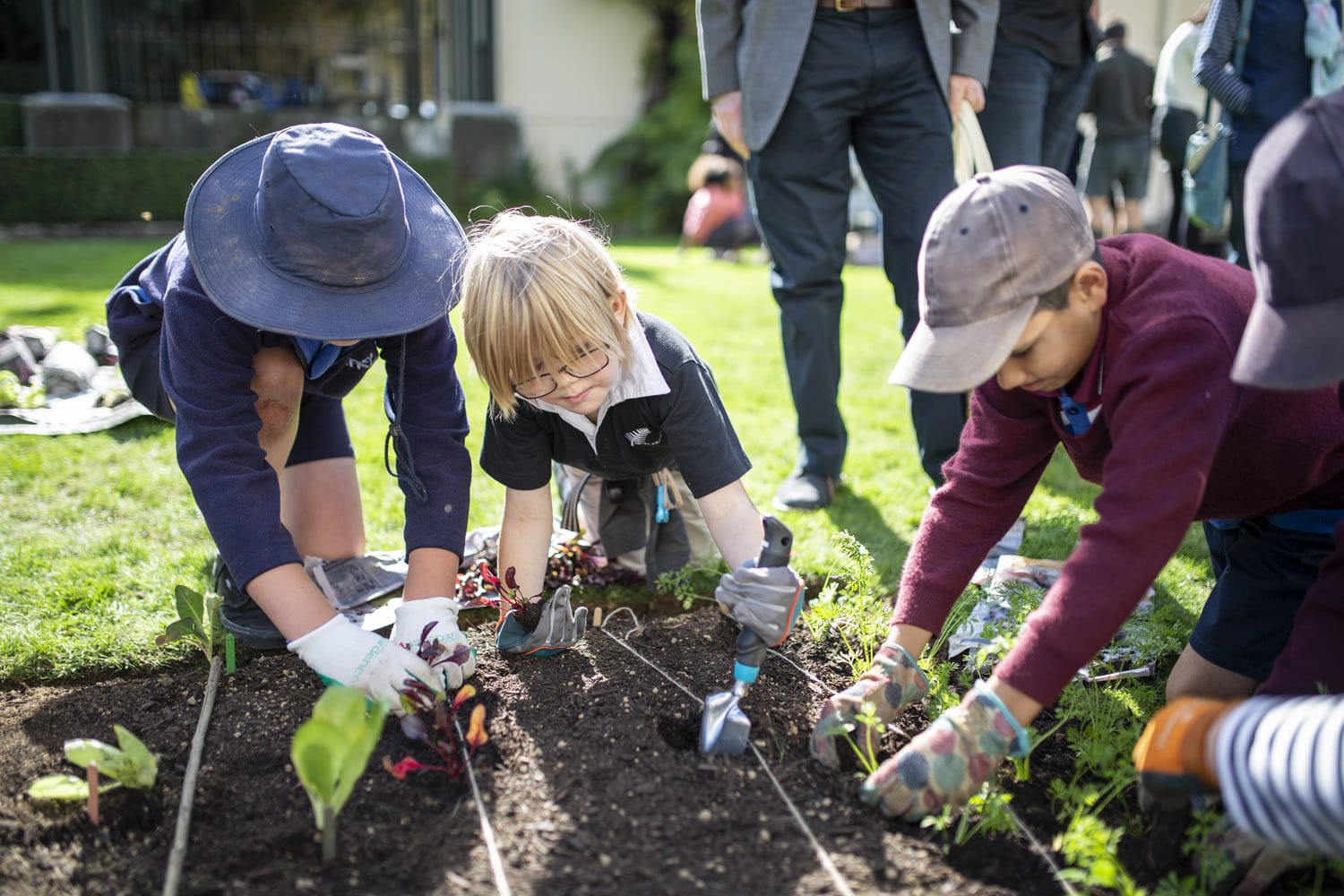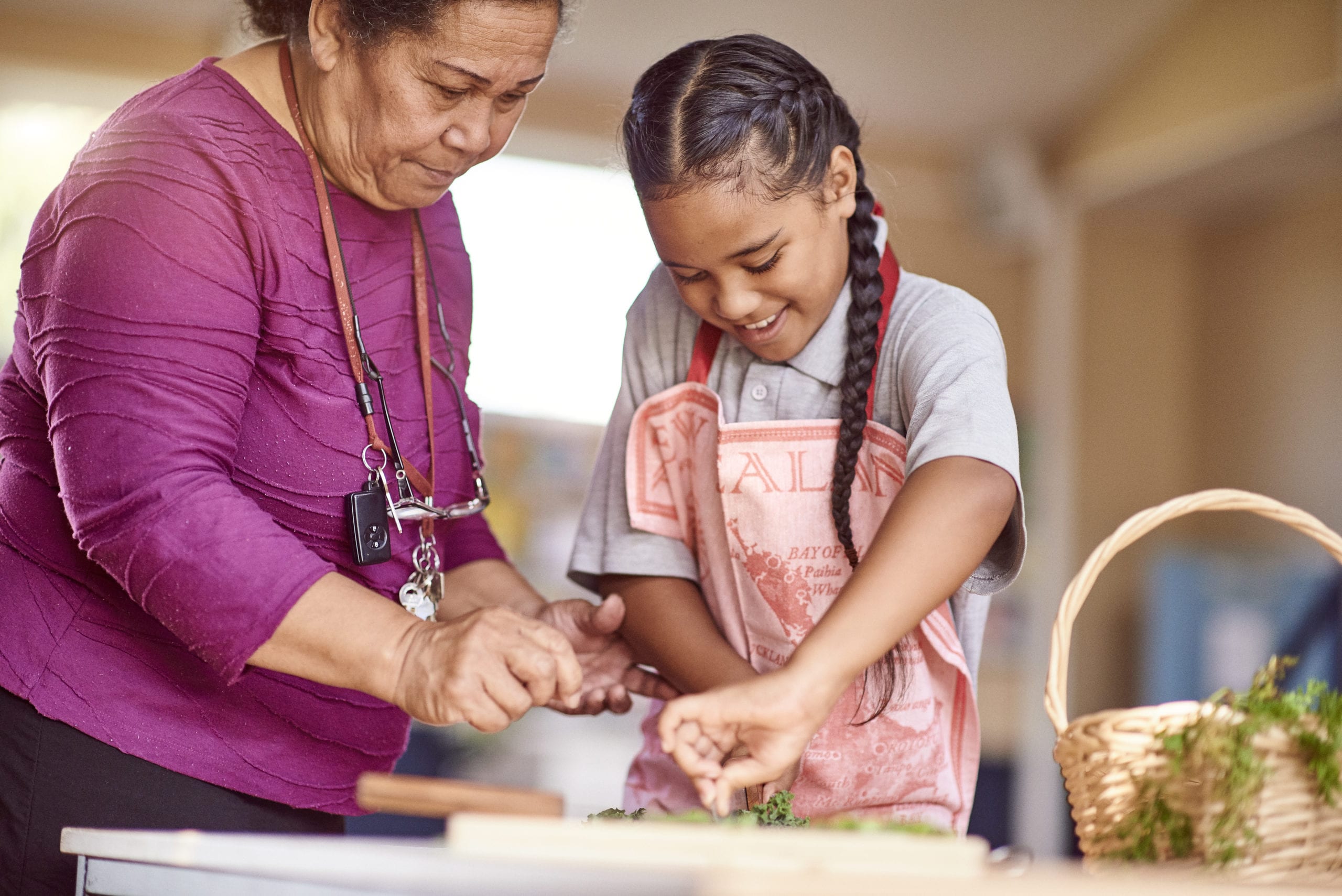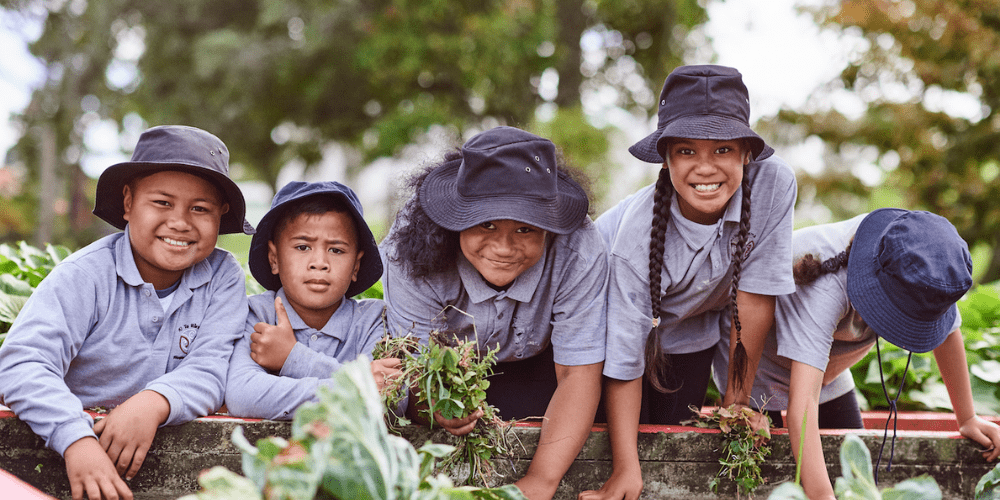There is a different kind of learning going on in schools across Australia and New Zealand. In these lessons, the classroom is outdoors. Instead of a whiteboard, they have a garden. Instead of a pen and paper, they have a shovel and gloves.
School gardens are not a novel concept. They were thought to have started as early as 1819 in Germany; they were even prescribed by law in countries such as Austria and Sweden in 1869, Yet nowadays, these school gardens are doing much more than growing food. Their benefits reach beyond gardening and food education to improving financial and literacy skills, environmental knowledge, physical health and mental and social wellbeing for students.
“Our programme is in the ‘solutions world’,” says Ani Brunet. She is the chief executive officer of the Garden to Table Charitable Trust, a New Zealand charity that works with primary-school-aged children in a curriculum-integrated gardening and food education programme.
“These life skills empower children to make a difference,” she says. “Learning to grow, harvest, prepare and share food makes a positive difference in a wide range of areas from health and wellbeing, food resilience and food poverty, climate change and sustainability, through to social connection and mental health.”
Through the programme, kids are encouraged to have fun in the garden and kitchen, learning about how ingredients end up on the plate. Since starting the charity in 2008, Garden to Table has expanded across the country, with more than 190 schools now running the programme. “Some are well established and cannot imagine their schools without it, others are still embedding Garden to Table into the school’s culture and community, and some are just starting the journey,” adds Garden to Table chair and co-founder Catherine Bell.
One of the many key benefits of the programme is allowing children to develop a love for vegetables, giving them a foundation for healthy eating for life and inspiring curiosity about food. “Garden to Table students become adventurous eaters and, even better, they know exactly where their food came from and how much love, time and nurturing each vegetable took to grow,” says Brunet.
Studies around kitchen garden programmes demonstrate the wide range of benefits received by students, schools and families. A recent study out of the University of Texas found that students who were involved in gardening, nutrition and cooking classes ate, on average, more vegetables per day compared with before the programme. Another study by the University of Melbourne and Deakin University on Australia’s Stephanie Alexander Kitchen Garden Programme found that children were more likely to try new foods after being in the programme. “Data and class observations also suggested that the social environment of the class increased children’s willingness to try new foods. This included sitting down together to share and enjoy the meal that they had prepared, with encouragement to taste but no pressure to eat,” says the study’s co-investigator, Petra Staiger.

Teachers and students at Wentworth Falls Public School, 100km west of Sydney, have been enjoying a bumper crop of apples, pears, plums, figs and feijoas from their school orchard. In their recently developed Kitchen Garden Programme, students have been getting stuck in, learning what to plant and how to look after their crops. At the moment, they’re designing a chicken coop; later in the semester, they’ll be harvesting the vegetables and cooking meals out of what they’ve grown. “It is of huge benefit to student’s physical and mental health,” says teacher Peter Evans. “I think we can be removed from what we eat, so being involved gives the student real ownership of this. Also the benefits to wellbeing of students through gardening and cooking is undeniable — the students look forward to every Tuesday with real enthusiasm.”
The educational advantages of programmes like Garden to Table have a flow-on effect, unlocking a hands-on, practical way to understand key concepts being taught at school, like maths, science and literacy. “The kitchen is a perfect place to explore measurement, capacity and fractions. Kids can see it represented in a way that makes sense,” says Brunet. “For example, children need to know how long something will be in the oven. Or need to cut something in half, or quarters. The language of maths comes out naturally in the kitchen.”
With the younger generation facing the harsh realities of the climate crisis, education around sustainability and climate resilience is crucial. And in the garden and kitchen, students are given practical tools and solutions to tackle these environmental issues.
“Sustainability is built into the fabric of Garden to Table,” says Brunet.
“We help them close the food production loop by turning the food scraps into compost rather than seeing it just as waste.
“Using food scraps and cardboard waste as a resource to give back to the garden through compost, and then growing food in the garden, builds sustainability awareness and builds resilience for the students and school community. And much of this learning and practical skills is transferred through student’s enthusiasm into their family households.”
The benefits of gardening beyond the school gate
While the benefits are well documented, starting a garden can often be the biggest hurdle for schools, many which don’t have enough funding or resources. Paul Dickson is the founder of Oke, a charity that builds gardens for schools in South Auckland. When he started Oke, Dickson found many of schools wanted to be involved in the Garden to Table programme, but lacked the resources to get there. Tapping into his project manager skill set, he called on the help of volunteers for a working bee at Papatoetoe West Primary, building a fully functional school garden in just one day.

Five years later, Oke has helped 14 schools around the area transform unused plots of land into thriving gardens. “It’s an amazing atmosphere during the day,” says Dickson. “If we’re building a garden during the week, the excitement levels are through the roof, the kids love seeing the garden being built for them. If it’s an intermediate school, we’ll sometimes have the kids involved in actually making the garden.”
Dickson has seen many success stories over the years. The first school they worked with is now a certified Green-Gold Enviroschool and uses the garden as the hub for its sustainability programme. He says that being able to help these schools in their garden and food education journey is incredibly rewarding.
“The kids are just so excited. They’ll tell you all about what the vegetables and even what vitamins we need. Whatever we’ve built, they’ve gone on and expanded; some now have pigs, chickens and bees. That’s exactly our goal, getting schools over the hurdle, then seeing them grow from there.” Since the pandemic, Dickson has seen a growing awareness of the need for these gardens, as communities embrace a locally grown mentality. “Schools really want these spaces. Before, we were reaching out to schools, and now I’m getting contacted two or three times a month, asking, ‘When can we be next?”
Brunet says that the many challenges of COVID-19 have highlighted “the importance of kindness and taking care of each other and working together for solutions”.
“Participation in the Garden to Table programme teaches children to nurture, communicate positively and work together collaboratively. These skills and experiences enhance social connection and inclusivity, which we believe is essential for our children and future generations.”
PHOTOGRAPHY: TOBIAS KRAUS & MICHELLE HEPBURN




